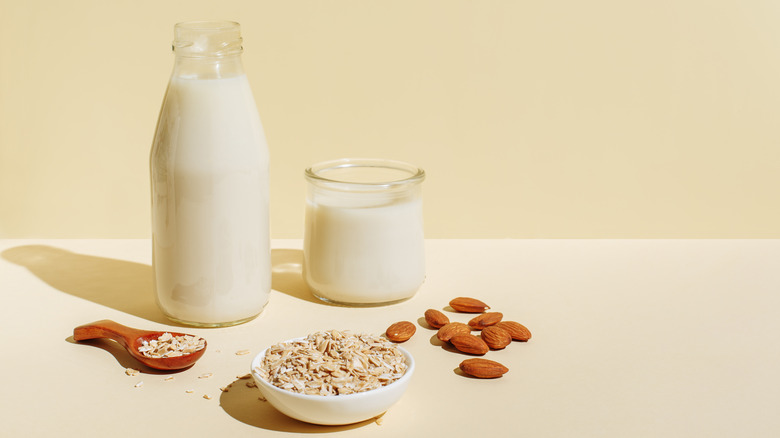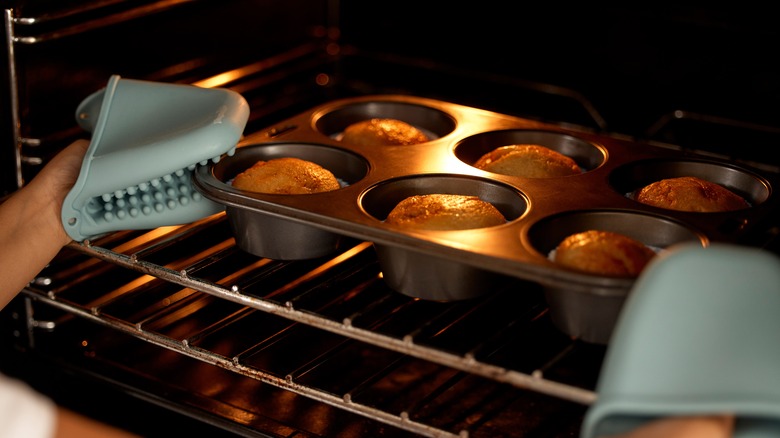The Worst Dairy-Free Milk You Can Use For Baking
With more and more non-dairy milk options on the market, there are several simple swaps for all your cooking and cereal-consuming needs. But baking is a more complicated science. Not all plant-based milks work well for baking. Some are neutrally flavored, others are sweetened. Some are thick and creamy, others are thin and watery. Some are protein rich, which supports the structure of your bakes, while others won't work to help your dough rise. So which dairy alternatives are a no-go for your baking needs?
Although rice milk is delicious in a strong and creamy homemade horchata and other drinks, it's unreliable in the oven. We all know that rice is super absorbent, which is handy when you're trying to give risotto its uniquely creamy texture. But that means rice milk has a much higher water content than other non-dairy milks. It's also quite thin in consistency, thinner than most other plant-based milks and cow's milk as well, which makes it difficult to swap it for dairy milk one to one. If you don't have anything else on hand, you can try whisking in a little cornstarch or rice flour with your rice milk to thicken it slightly before adding, but your baking results will be far from a guaranteed success.
But which dairy-free milk is best for baking?
Although it may seem like a surprising choice over oat milk or almond milk, soy milk is actually the best non-dairy milk for baking. You'll notice as soon as you pour it into a measuring cup that soy milk has a thick viscosity that's similar to whole milk. It may seem innocuous, but the thickness of your milk immediately impacts the consistency of your batter and will ultimately change the structure of your final product. Soy milk also has a fairly muted flavor that's easily subsumed by the other buttery, sugary, and yeasty flavors of your baked goods. Plus, like almond milk, soy milk comes in unsweetened, original, and vanilla-flavored varieties, which could be fun to play around with depending on what you're cooking up.
In addition to its flavor and consistency, the factor that truly sets soy milk apart from other non-dairy competitors when baking is its protein content. Cakes and breads in particular need protein to build an airy interior texture and to develop a satisfyingly fluffy rise. Soy milk has about as much protein as whole milk (7 grams of protein per cup as opposed to the 8 grams in regular milk) and far outstrips other non-dairy milk options, which are seriously lacking in protein. The amount of protein in soy milk also helps baked goods to brown nicely so they'll look just like their dairy-based counterparts, making it an excellent plant-based milk to bake with.

